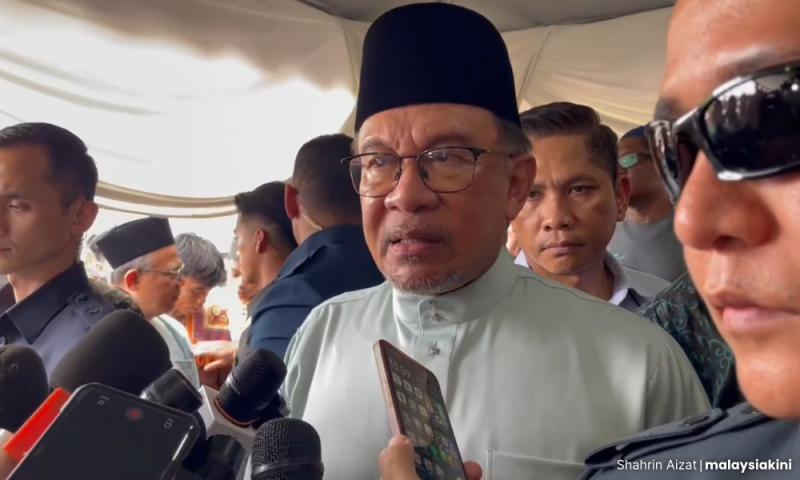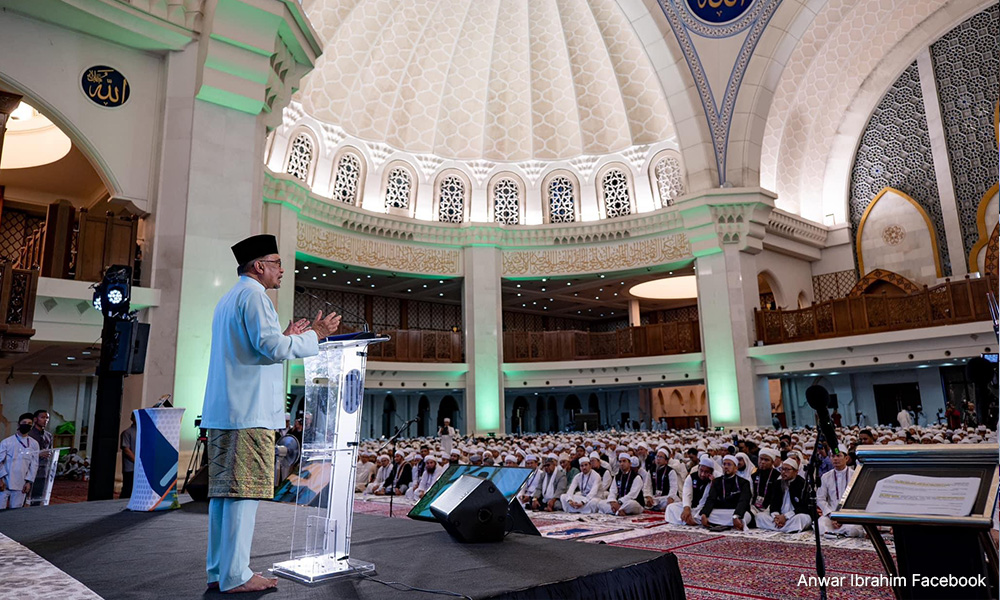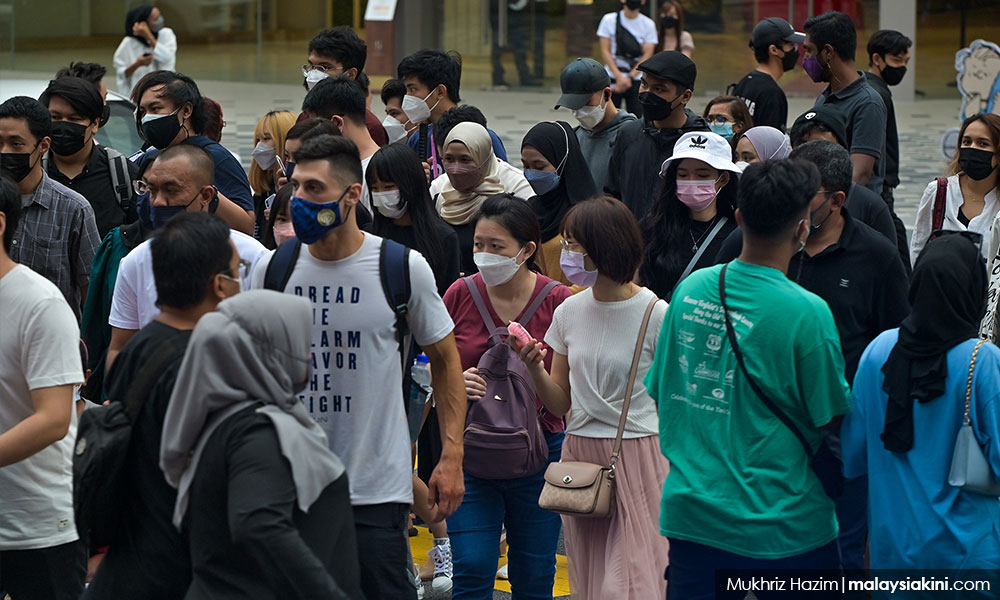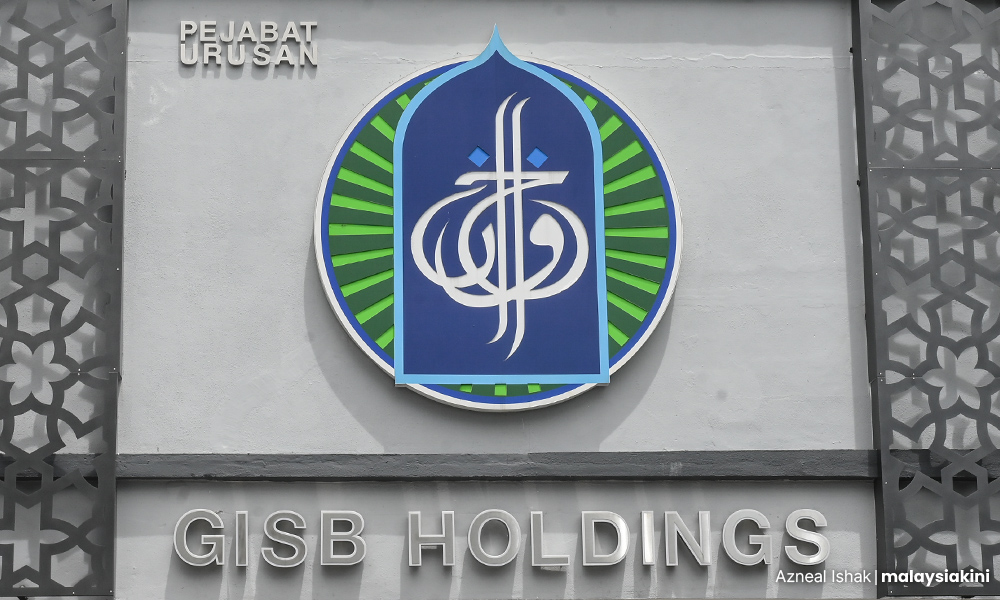
S Thayaparan
Published: Sep 23, 2024 10:50 AM
“This country is going haywire. On one side, as soon as Islam is mentioned, they react angrily.”
COMMENT | While speaking at the 24K Huffaz Gathering at the Federal Territory Mosque last week, Prime Minister Anwar Ibrahim continued a Manichean narrative that fuels racial and religious discord.
“So, we are forced to face these two forces: on one side, there is Islamophobia, where Islam cannot be mentioned at all.
“On the other side, they are the only Islamic group, and everyone else is deviant, evil, and oppressive,” he said in defining the religious discourse.
Not only is this a false premise, but it also underscores the deeply divisive mainstream Muslim narratives of this country, which have demonised secular or moderate Islamic voices in our public and private spaces.
First off, can the prime minister point to any organisation, political party or high-profile individuals who could be deemed “Islamophobic” or who do not want any mention of Islam?
What Anwar can point to are organisations, political parties and individuals who have reacted against the intrusion of Islam into non-Muslim economic and social spheres, which we were told would not happen under the so-called social contract or Muslim voices who fear that the religion of the state would curtail their democratic rights.
Has the prime minister condemned the hate speech of religious extremists who have labelled non-believers “kafir”?
Has Anwar condemned the persecution of non-Muslim businesses by provocateurs from his own coalition?
Published: Sep 23, 2024 10:50 AM
“This country is going haywire. On one side, as soon as Islam is mentioned, they react angrily.”
- Prime Minister Anwar Ibrahim
COMMENT | While speaking at the 24K Huffaz Gathering at the Federal Territory Mosque last week, Prime Minister Anwar Ibrahim continued a Manichean narrative that fuels racial and religious discord.
“So, we are forced to face these two forces: on one side, there is Islamophobia, where Islam cannot be mentioned at all.
“On the other side, they are the only Islamic group, and everyone else is deviant, evil, and oppressive,” he said in defining the religious discourse.
Not only is this a false premise, but it also underscores the deeply divisive mainstream Muslim narratives of this country, which have demonised secular or moderate Islamic voices in our public and private spaces.
First off, can the prime minister point to any organisation, political party or high-profile individuals who could be deemed “Islamophobic” or who do not want any mention of Islam?
What Anwar can point to are organisations, political parties and individuals who have reacted against the intrusion of Islam into non-Muslim economic and social spheres, which we were told would not happen under the so-called social contract or Muslim voices who fear that the religion of the state would curtail their democratic rights.
Has the prime minister condemned the hate speech of religious extremists who have labelled non-believers “kafir”?
Has Anwar condemned the persecution of non-Muslim businesses by provocateurs from his own coalition?

Has he stood up for progressive Muslims, who stand alone most often against the extremism of the far religious right?
Has the premier offered a religious narrative which is removed from hate-filled rhetoric and policies of those on the “other side, who claim to be the only Islamic party“?
Snake in the grass
Religious provocations come from the practitioners of the state-sponsored religion and not from minority belief systems.
Such provocations include threats to burn holy texts, disrespecting religious symbols or icons, investigations into possible proselytising, claims against other religions, banning of words, and imposing dress codes in public institutions.
Unilateral conversions, unlawful conversions of minors, religious kidnapping in custody cases, rehabilitation centres, and seditious comments against specific religions are also part of this.
Two points need to be made about the prime minister’s claim on people who do not want any mention of Islam.
The first is that this type of strategy is employed by politicians who do not want any form of pushback against Islamic policies, even if said policies encroach into non-Muslim rights.
Secondly, when it comes to the non-Muslim political class, they have bent over backwards in their attempts to be supportive of such policies, and when it comes to objecting to such religious intrusions into non-Muslsim rights, they have to object with one hand tied behind their backs, lest they are accused of stirring up 3R (race, religion, royalty) issues.
Islamophobia is something religious political operatives use when attempting to impose religious policies or restrict free speech.
Non-Muslims hit by ricochet
Mind you, if there was a strict separation between policies which affect Muslims and non-Muslims, and there was empirical evidence to support such a position, then non-Malays would not have a fear of Islam.
Instead, the rules that apply to Muslims only have always touched non-Muslims and defined our economic, social and political realities.

Have you noticed that “the other side” also uses the same kind of strategy when it comes to religious policy?
These days, anyone who objects to religious policy encroaching upon their democratic rights is considered Islamophobic or does not want any mention of Islam.
If, for example, you object to any Islamic policy which affects non-Muslim economic interests, are you Islamophobic and do not want any mention of Islam?
Inter-religious rivalry
Meanwhile, claiming the other side thinks other Muslims not of their tribe are deviant, evil and oppressive misses the point.
We have religious bureaucracies, state and federal, who are the gatekeepers of Islam. They are always on the lookout for deviancy and evil and have been called oppressive in their overreach and policymaking.
Hence, inter-religious rivalries and schisms for religious dominance are the basis for political power.
The recent Global Ikhwan Service and Business Holding (GISBH) horror story is an example of how factionalism, schisms, religious personalities and the religious bureaucracy, coupled with big business, form the central narrative of religious hegemony.

The threat has always been the enemies within and not the propaganda that non-Muslim faiths are a threat to the religion of the state.
Furthermore, Anwar’s other side argument only makes sense if you can point to a religious narrative that is different from PAS/Perikatan Nasional’s.
Can the prime minister do this? For example, a religious bureaucracy has labelled Sisters in Islam as deviant. Has any religious bureaucracy labelled anything PAS has said or done as deviant within the confines of the religion of the state?
Sure, you can say that Pakatan Harapan states are not like PAS-run states, but this is a function of ethnic democracy and not religious ideology.
Keep in mind that religious bureaucracies still hold sway in Harapan-controlled states, but they do not have the overreach they do because they lack the political capital in terms of vote share to make their presence truly felt.
Anwar’s false premise is self-serving and extremely dangerous because it conforms to far-right religious narratives and further marginalises voices that actually want reform.
The factual premise is that the prime minister, on one hand, wants to strengthen the position of Islam, and, on the other, claims that Islamophobia is a threat to the religion of the state.
The reality has always been that religious fascism is a threat to national unity.
S THAYAPARAN is Commander (Rtd) of the Royal Malaysian Navy. Fīat jūstitia ruat cælum - “Let justice be done though the heavens fall.”

No comments:
Post a Comment